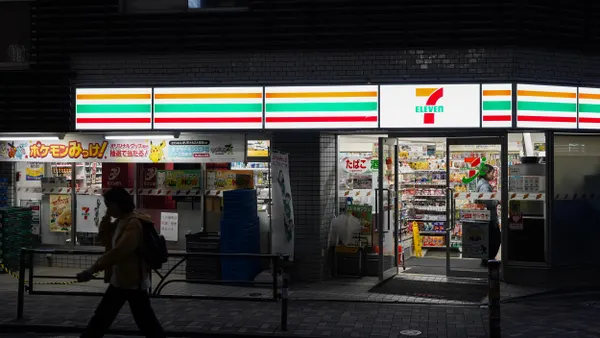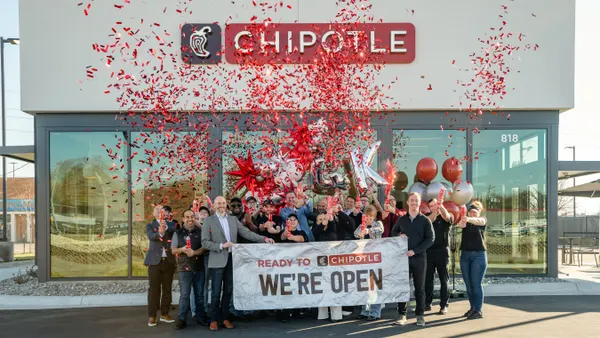Dive Brief:
- MOVE systems, maker of solar-powered and battery-rechargeable food carts, is expanding its platform with franchise businesses, according to a company release. Each cart has a mobile POS system.
- MOVE says it has operated its mobile carts from coast-to-cast, has partnered with franchisors Dunkin' and Nathan's Famous and has more than 65 "mobile restaurants" in New York City.
- The company's carts produce an estimated 60% less greenhouse gas and 95% less pollution that traditional food carts and trucks.
Dive Insight:
While food trucks are being rolled out by major brands, carts/trailers offered by companies like MOVE provide a cost-effective, nimble way to get in front of new customers and check local competition for brands that require less prep, like Nathan's and Dunkin'. With these two brands under its belt, and a compelling environmental sustainability offering — an operator told the Wall Street Journal it has none of the "fumes, noise and complaints" traditional carts caused — it's possible that MOVE could lure more partnerships from companies with similar offerings.
It would be an interesting shift, though, as corporate restaurants are more often seen in the food truck space than in the food cart world. Auntie Anne's, for example, has shaken up its image as a shopping mall staple by deploying a fleet of two dozen food trucks in nine cities. Next year, the chains aim to double that number.
Shake Shack will also roll out food trucks this month in New Jersey and Atlanta, staffing vehicles with local restaurant staff. The trucks can also be used for events and private parties. As these chains join Dunkin' and Nathan's Famous on the pavement, they could lure more single-unit franchisees, as these units require less investment and lower overhead than a traditional brick-and-mortar format.
Mobile units also allow restaurant chains to test in new markets with reduced risk and can help stave off competition from independent food trucks, which were once a threat to the QSR space. But it's not just fast food players who are putting their concepts on wheels — casual dining chains like Johnny Rockets have also tested this format and found success. Because many QSR brands require more cooking and preparation space than what a trailer like MOVE can offer, it seems that food trucks will likely be the way forward for fast food chains looking to hit the road.
But MOVE convinced veteran street food vendors in Bryant Park, New York City to transition from their independent food carts to Nathan's-branded units, and the new franchisees told Crain's New York Business the shift was an improvement.
"We raised the standard of our food product. We are using a very famous brand, and customers trust the brand," Maged Akl, a seven-year veteran of street food sales, told the publication. "In the past we didn't have any names to serve. The customer did not trust the cart, because the cart contained many brands. We are serving a food with a history of good taste, and that makes me very confident."
MOVE's lease price — only $1 per month — is also a big lure for potential franchisees. The company is placing its money-making bets on payment-card interchange fees, cart-side ads and natural-gas sales. No matter how profitable a brand is (or isn’t), they would be hard pressed to turn away such cost-effective visibility.










